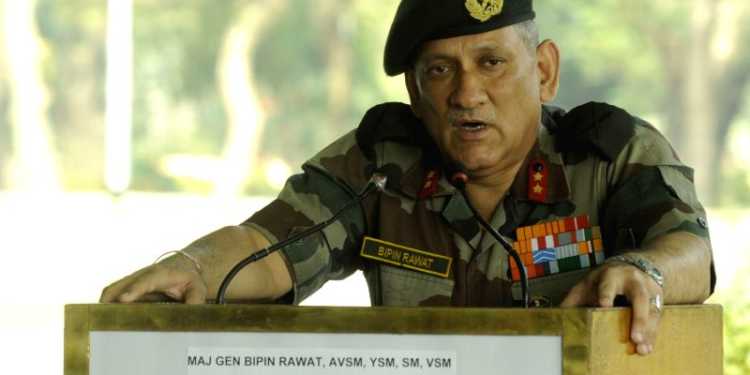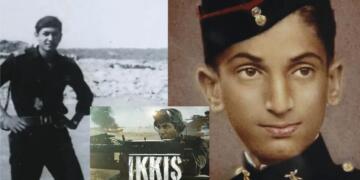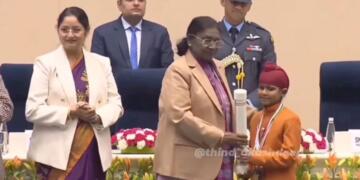Democratic apparatus here has flourished owing to an unprecedented safeguarding by twin duo institutions. The judiciary and the armed forces have been the bedrock foundations on which democracy here has rested and survived. When it comes to the latter, the respect and the patriotic fervour attached and imbibed to the same is unparalled and sacred. And when it comes to the army, the multilateral theatres in which they have invigorated itself has further increased respect pertaining to them by leaps and bounds.
Be it the flash floods in Kashmir or even not adhering to Indira Gandhi’s imposition of martial wishes during emergency, the armed forces and the army have delivered.
When it comes to the appointment of the next army chief, the anticipation and prestige associated with the same is undeniably tremendous.
As the defence ministry announced Lt General Bipin Rawat will be the new army chief, he comes in at a moment when seniority issue is doing the rounds in the media. As the post fell vacant in September, Rawat was brought it trouncing two senior army personnel in the form of Lt General Pravin Bakshi and Lt General PM Hariz.
Owing to his unexpected selection, the media was quick to jump the guns and allege subtle favouritism ensuing from the same. This is rare but not the first time such an appointment has been made nevertheless last time it happened was during Indira Gandhi’s rule itself. The first major challenge for the new army chief will be to iron out any differences and negate alleged factionalism in the coveted institution.
We have seen in the past how feuds inside have fully spilled over to the media becoming a bickering onslaught as seen between Bikram Singh and VK Singh during the times of UPA where the former was considered to have an establishment connection of the day. The other aspect which may be challenging to the new army chief is the reason given by the government for his superseding seniors in lieu with hierarchy. As the opposition was on the war footing over this surprise announcement, the army chief selection was caught in the midst of political cross fire.
Rawat was picked up over others in lieu with his robust experiences in the counter terrorism domain, his research on military media studies and his said purported dynamism in leadership qualities. His outstanding track record especially his stint as a commanding officer of division 19 in J and K aided by his well versed know how of the internal functioning of army HQ and the MoD may have worked in his favour. His spearheading also may have been the result of two deadly attacks on the armed forces in the name of Pathankhot and Uri which necessitated his experience and abilities.
With increasing threat from insurgency across border via Pakistan, war has duly become more unconventionally complex over the years with backdrop of an ensuing proxy turf warfare. Although this did exist since much before, the internal rumblings in Pakistan and its deteriorating internal climate in form of emergence of more deadly terror groups has made the long porous border as an eminent security threat in the region with a new Pakistani army chief too in the reckoning.
The terse situation in the valley following Burhan Wanis killing and the subsequent rioting and curfew episodes has left the state on the boil which will be Rawats main bone of contention with reports of demonetisation having broken the back of protesting tirade in the valley.
Other important aspect with Rawat is about the fact that he has served at both the flash pointing borders of the Line of control with respect to Pakistan and the Line of Actual control in lieu with the Chinese. The collapsing Chinese economy has never thwarted its attempts to fledge its hegemony in the region notwithstanding the gigantic Pakistan China economic corridor and its increasing encroachment and intrusion at the borders.
Rawat was involved in 1986 operations in the eastern sector facing China and even the north east. Rawat himself has emphasized about a two front collusive threat from both the rival neighbouring countries and was also quite confident about the armed forces handling a two front contingency in an eventuality for the same. With changing position from a persistently dissuasion posture during the UPA to a deterrence outlook against the Chinese now with the Modi Govt in power, signs are it would be upgraded to a better deterrence with a resurgent Rawat at the helm.
The army is raising new 17 mountain corps where soldiers will have two high altitude infantry divisions. The new army chief will oversee this development which will ensure quick ground reaction offensive from the corps in advent of any threat across the border.
When UPA was in power, the morale of the forces too had gone down owing to scams and apparent lack of basic ammunitions and materials which would have sustained the armed forces for few days in a war. The change of govt has resulted in a better defence outlook where replenishment of the stocks along with decisions to embark on surgical strikes to destroy terror camps and progress in infrastructural development lying in laggards has somewhere brought back the focus from politics on to the much needed upgrading and modernisation of the armed forces to prepare for any given eventuality. General Rawat seems to fit into that mould of this changing face of the military and seems to blend with the policy makers over these scheme of things and seem to be on the same page.
As there is a change of guard even in the Pakistani army along with the Indian counterpart, both have been appointed at a glaringly transforming environment. The one in Islamabad wielding unrelentingly complete power over the civilian govt may be waiting in the wings to stage a coup, here the one donning uniform is all set to be the guardian of an enhanced polity at the centre to strengthen the state and make an emerging great power in the vastly changing global climate.




























